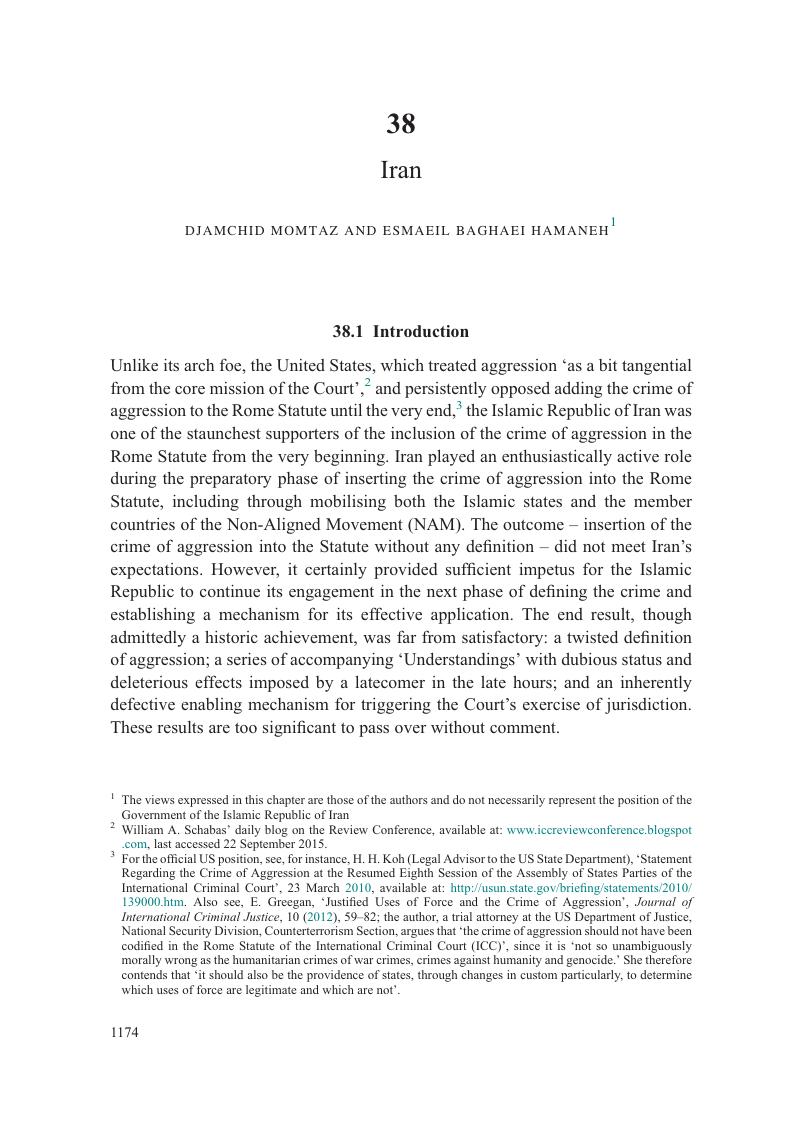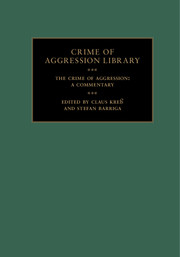Book contents
- The Crime of Aggression: A Commentary
- Crime of Aggression Library
- The Crime of Aggression: A Commentary
- Copyright page
- Contents
- Contributors
- Foreword
- Acknowledgements
- Introduction: The Crime of Aggression and the International Legal Order
- Part I History
- Part II Theory
- Part III Crime of Aggression under Current International Law
- Part IV Crime of Aggression and National Law
- Part V Crime of Aggression and the Future World Order
- A. Actors’ Views
- 33 Brazil
- 34 China
- 35 France
- 36 Germany
- 37 India
- 38 Iran
- 39 Israel
- 40 Japan
- 41 Republic of Korea (South Korea)
- 42 Norway
- 43 Russia
- 44 South Africa
- 45 United Kingdom
- 46 United States
- 47 Egypt
- 48 Civil Society
- B. Scholarly Reflections
- Epilogue. The Long Journey to Kampala: A Personal Memoir
- Index
- References
38 - Iran
from A. - Actors’ Views
Published online by Cambridge University Press: 06 April 2017
- The Crime of Aggression: A Commentary
- Crime of Aggression Library
- The Crime of Aggression: A Commentary
- Copyright page
- Contents
- Contributors
- Foreword
- Acknowledgements
- Introduction: The Crime of Aggression and the International Legal Order
- Part I History
- Part II Theory
- Part III Crime of Aggression under Current International Law
- Part IV Crime of Aggression and National Law
- Part V Crime of Aggression and the Future World Order
- A. Actors’ Views
- 33 Brazil
- 34 China
- 35 France
- 36 Germany
- 37 India
- 38 Iran
- 39 Israel
- 40 Japan
- 41 Republic of Korea (South Korea)
- 42 Norway
- 43 Russia
- 44 South Africa
- 45 United Kingdom
- 46 United States
- 47 Egypt
- 48 Civil Society
- B. Scholarly Reflections
- Epilogue. The Long Journey to Kampala: A Personal Memoir
- Index
- References
Summary

- Type
- Chapter
- Information
- The Crime of AggressionA Commentary, pp. 1174 - 1197Publisher: Cambridge University PressPrint publication year: 2016

